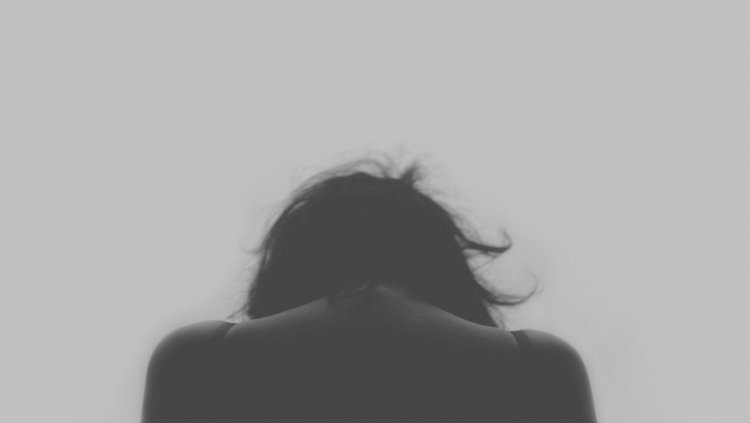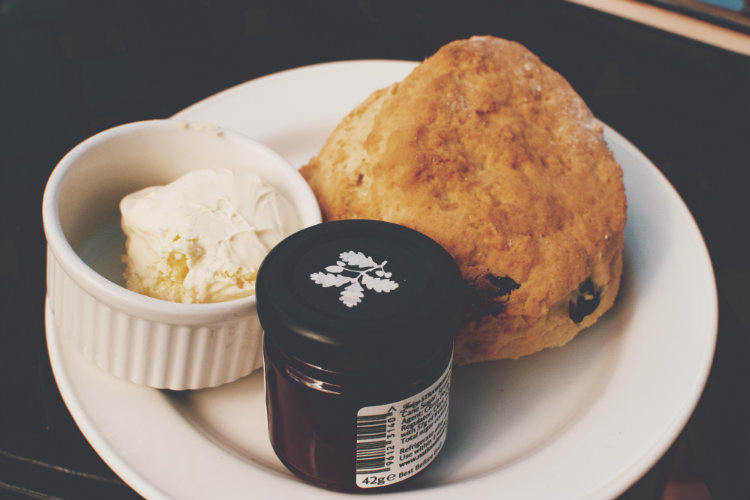Irish Essayist | 1 | Girls Blush, Sometimes by Carol Ballantine
A form of literary autobiography, the personal essay allows us to ruminate on truths from our own life experiences. Every Wednesday this month, the Irish Essayist series will see writers test the continually-expanding essay format to explore subjects as diverse as mental illness, gender, music, growing up, and more.
Girls Blush, Sometimes
by Carol Ballantine
I was about 25 when I congratulated myself on emerging victorious from the obstacle course of early womanhood. It was 2002, I had a job and a boyfriend, and I had managed somehow, through luck or a blurry sense of self-preservation to make it without getting pregnant. At that point, I reasoned, anything could happen and I had the resources to deal with it without jeopardising my social standing.
In recent years, as the politics of shame have emerged centre stage, I have realised that my relief was a little premature. I marked the difference between me and all the women made to suffer for their deviant sexuality – but we were raised in the same society. In different ways, all that shame marked us all.
*
It was 2.00PM by the time we left the house on St Stephen’s Day, and by then we were all pretty tetchy. Myself, my husband, and our 4 year old twins were driving to Roscrea, a pit stop on the way to New Year’s in Dingle. Eventually Zack and Sam, the twins, fell asleep, and Gavin phoned Aunty Mary to let her know we were on the road.
“Yes Gavin? What’s wrong?” she asked breathlessly. My Aunty Mary is highly strung.
Somewhere outside Naas I felt a clump. The acceleration in the car had slowed quite suddenly, and a new light came on the dashboard, saying “check ignition”. I was burning with self-censure: the checks I hadn’t done; the cost I had probably incurred; the danger I was subjecting my blameless family to. The best use to which I could put my own self-blame was to direct it outward, and so I raged at Gavin, the non-driver, infantilised in the back seat without so much as a provisional licence. For all my feminism, I just wanted the guy to fix the car.
I never liked that car. It was too big for me, and too grown-up looking; I was embarrassed by its Mammyish heft. It had been a bad buy, one whose idiosyncrasies cost our family dearly in cash and in niggling inconveniences. This car was directly emblematic of my failings. And nowhere were my failings more apparent to me than in Roscrea, in the bosom of my own family of origin.

My mother (who died young, just as I reached adulthood) came from Roscrea, a medium-sized midlands town once known for its two meat factories and two pharmaceutical factories, and latterly, Sean Ross Abbey, the mother and baby home from which Philomena Lee’s baby son was sold for adoption. All four factories are now closed, the Abbey repurposed as a school for children with special needs. Growing up a suburban Dublin child, Roscrea felt to me like a sort of home, and now that my immediate family has shrunk to a sister and a brother, we all remain fiercely close to our mother’s sister, Aunty Mary. In our small family, when somebody says “Roscrea”, it can be taken to mean “Aunty Mary’s house”.
It was cold and dark and wet when we limped into the drive of my Aunt’s house. Having bickered for a good stretch of the drive, by now Gavin and I were speaking to each other only when an especially cruel insult suggested itself. The children, oblivious, were just waking up. Zack had vomit in his lap. Sam wriggled excitedly into his Elsa dress in his car seat. The car was banjaxed and I was pretty sure the only way it was leaving this driveway was on a tow truck.
While the children cosied in to a spoiling at the hands of their aunt, we two adults had to navigate a catalogue of logistics through the fug of mutual antipathy. Gavin was weary, and nervously aware that I was second-guessing his every move. I wasn’t the only one. Gavin makes Aunty Mary uncomfortable because nobody ever taught him to be Irish. Offered tea, he will accept first time. Served a sandwich, he’ll ask for mustard. In the course of a dull conversation in which he’s not participating, he’ll open a newspaper. Where I see a lack of manners, Gavin just sees common sense, efficiency. And my older relatives, I think, see some terrible ignorance. When we were a brand new couple, he made chutney for all my family as a Christmas gift.
“Chutney”, said Aunty Mary, opening her present at the dinner table.
“It’s a very Protestant thing to do, make chutney.”
There were a lot of jobs to be done in this place where there was no consensus on how a person should behave. If I hadn’t had my family in tow, I might well have tried to have the car repaired or replaced in secret, rather than confront my Aunt with the truth, and deal with her negative assessment of me and my family.

Shame, Freud asserted, is “the feminine emotion par excellence”. Consequently, he thought it not worth studying, an immature emotion found only in children, women and savages. Many years later, as feminist writers continued to rake irritably over the bones of Freud’s legacy, Sandra Bartky picked that argument apart: shame, she saw, is prominent in the marginal precisely because it is a tool of oppression, of marginalisation. The construction of the feminine is policed through women’s own emotions, a genius trick. Hegemonic femininity, the passive, nurturing, chaste-yet-fertile idealised woman, is produced and reproduced in no small part by an atmosphere in which women are ashamed of their failings at a set of social standards we never asked for and don’t necessarily buy into. Of course, nobody meets the notional social standard. “Feeling inadequate”, Bartky says of gender and oppression, “may colour a person’s entire emotional life.”
It’s not that men don’t feel shame, that much is clear to us now, in 2017, with that despot parading his narcissistic masculine shame all over our newsfeeds. But shame, social emotion that it is, is mediated by gender. Shame is a feeling of failure, against some standard, external or internal. The standards imposed on men are individual: classically, men feel shame when they fail to perform a task, or (naturally), fail to perform sexually. The terrain of women is the interpersonal: we are trained to tend and manage relationships, to nurture and sustain them. What people think, how people feel, these are the concerns of the matriarch and her entourage – and when there is any rupture in relationships, it is women who are to blame, and women who feel the harm.
We react differently too. When men feel shame, they are taught to respond like a wounded animal, pushing the pain away from themselves towards other, weaker targets. Narcissistic rage it’s called, and we know it from countless man-babies lashing out against accusations of weakness. Women’s responses to the intense pain of shame are embedded in our conditioning. Good girls don’t express hostility openly. Women are more likely to internalise our anger and anxiety, to move towards punitive self-censure and blame. One hundred and sixty years ago, long before Freud, Elizabeth Barrett Browning described female shame in Aurora Leigh:
Girls blush sometimes because they are alive,
Half wishing they were dead to save the shame.
The sudden blush devours them, neck and brow;
They have drawn too near the fire of life, like gnats,
And flare up bodily, wings and all. What then?
Who’s sorry for a gnat… or girl?
Our progress towards Dingle was not as hopeless as it might have been, but my raging self-blame certainly made it feel that way. Gavin’s mum Jane was driving from Dublin to Dingle the following morning with an empty car, just big enough to squeeze five of us into. The mechanic confirmed that the Renault Scenic had reached the end of its days. Zack crept into the sitting room where Mary was watching a true crime drama, and said:
“Aunty Mary? I just–“
“I just love you.”
She returned his hug, with that crazy warmth that had made me adore her as a child.

While Gavin and I tried to get things organised, Zack and Sam marauded, craving attention. They put everybody slightly on edge, with frequent small harms (“I hurted my finger!”) and ferocious battles (“Zack stealed my sword!”). At Christmas time, they had become accustomed to being indulged to an even greater degree than usual, to exist in a world without bedtime or rules. They were indulged in Roscrea too, bedtime suspended, round after round of inappropriate treats offered?—?but there was a different edge to this indulgence, an expectation that I would control them nonetheless. Or maybe there wasn’t. Maybe that was just me. The task of parenting in public is almost unbearable. My children were behaving badly? This was my fault, my failure, my inadequacy.
My mother in law doesn’t visit my aunt as a matter of course, even though Roscrea lies conveniently on the road between Jane’s home and ours. On the few occasions when they have even met, there’s been meticulous planning, the children prepared and briefed in advance, food and drink carefully thought through. Now we were gearing up for an unanticipated meeting. Instead of joining the visit, the polite thing to do, I set to packing our things into Jane’s car. I had spent the night fretting about transporting us and our belongings, and more particularly about leaving things behind in Mary’s house. I had reached a point where any demand on my aunt’s resources felt like a transgression to me, or at least a benefit for which I would be indefinably and indefinitely indebted.
The children were bratty. They raided the plate of chocolate fingers placed tantalisingly in front of them, and they fought under the coffee table, spilling tea and whining. They tugged at Jane sitting in the best chair in the room, demanding her attention, Sam trying to climb up on her knee. Jane has a blithe tolerance for this sort of carry on, to the extent that in many cases I don’t even notice it. Here in Roscrea though, where different standards apply, it was different.
Jane got up to go to the toilet. Straight away, Zack and Sam charged after her, and crashed right into the little downstairs bathroom. They knew it had no key and that they wouldn’t find the door locked. They shrieked and giggled and pushed and tumbled, barging in on an old lady and her dignity. Sitting on the toilet, all Jane could do was to try to whoosh them out.
I was so deeply and immediately appalled I barely registered anybody else’s reaction. I hauled Zack back by the scruff of his collar and scolded him aggressively: a pathetic, hopeless show that of course had no impact. For four years I had plugged away at some sort of gentle non-punitive parenting, and now he was unconvinced by my attempt at a display of power. He laughed, ducked out of my grip, and made another assault on the occupied toilet.
I directed a frenzy of urgent whispers to Gavin, slightly out of earshot.
“When are we leaving? We have to get the kids out of here!”
Gavin laughed, told me to relax. He was utterly oblivious to my agony, the judgements that were piling up between my consciousness and my aunt’s. Casually, he relayed a funny anecdote, something he had overheard my aunt saying to his mother:
“Sometimes I worry they’ll turn on her”, is what Aunty Mary had said.
“She thinks you can’t control them”, he explained, meaning Zack and Sam, my sons.
My mouth gaped and my eyes blinked baffled furious drops. I was disgusted.
“Jesus! How can you tell me that?! That’s the voice in my head! That’s what I think too!”
I think I can’t control them. I think I’m a bad parent. I think I’m a bad person.
*
Twelve hours later I was drinking a gin and tonic in Jane’s house in Dingle, and Zack and Sam, soft and silky from the bath, were on the sofa watching movies and drinking smoothies. Dingle is a place where there’s no judgement and no blame. People rise late, read newspapers, and talk about eating all the time. In a house that always seems full, nobody ever criticises anybody for not making the most of the good weather, or for opening a bottle of wine at 5 o’clock in the evening. When I began visiting Gavin’s mother’s house early in our relationship, I felt slightly marooned for the lack of a defining moral code, parameters outside of which guests should feel uncomfortable, guilty even. At the same time as I relished the freedom and peace, I was anxious about being the only person who seemed to know that this was all deeply, deeply immoral.
Bartky has a term for this anxiety, this endless self-correction: she calls it “perpetual attunement”. Eventually, feminist scholarship helped me in excavating my emotional responses and revealing their origins deep in gender politics. For Bartky, shame is a practice, and it is carried out by applying external standards to oneself, and relentlessly adjusting the body in accordance with those standards. This instinctive attunement is how I learned to be in the world, and it’s how I continue, always checking myself so that I’m not too noisy, too difficult, too present. It’s learned, and it’s lived, deep in my sense of self, passed carefully down the generations.
However deep it goes in me, this relentless self-judgement, it runs far deeper in Aunty Mary, a woman with strong opinions and fierce loyalties who nonetheless wouldn’t dream of transgressing in her tight community. She taught me many things: to ride a bike; to play tennis; to visit family members and cherish family relationships however distant. She also taught me to maintain a low self-opinion, never to get above my station. As a child, she would praise me lavishly, and cut me down seconds later. Keep me in my place, as she kept in hers. As she keeps in hers. Our shame, our minuteness, our perpetual attunement, it is inter-generational, and although there is nothing biological about it, it’s nonetheless inherited. My husband worries that I will pass it to the children – sometimes I fear that I won’t. Shame is the most profoundly effective mode of accountability I know.
None of the parenting books – the kind that teach you to respect the child’s delicate spirit and nurture their incipient identity – tells you what to do when your child disgraces you in front of your beloved conservative maternal aunt. Those books, they have no idea that the burning exposure of disgrace is the worst thing in the world. I exert such an effort on not shaming my children, swallowing my judgements of their inchoate instincts. So I become a black hole of shame, accepting and internalising all the opprobrium, so it can stop with me. So that they can grow up shame-free. This, I hope, is what change feels like. Excruciating. Mortifying. Lonely.

